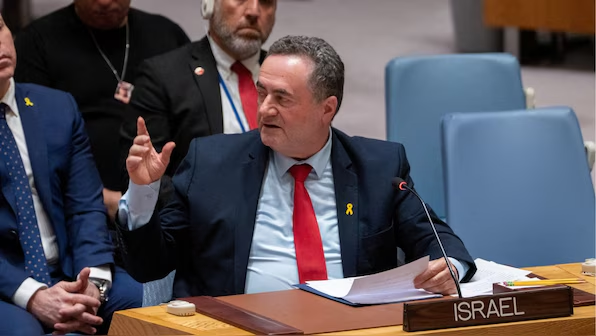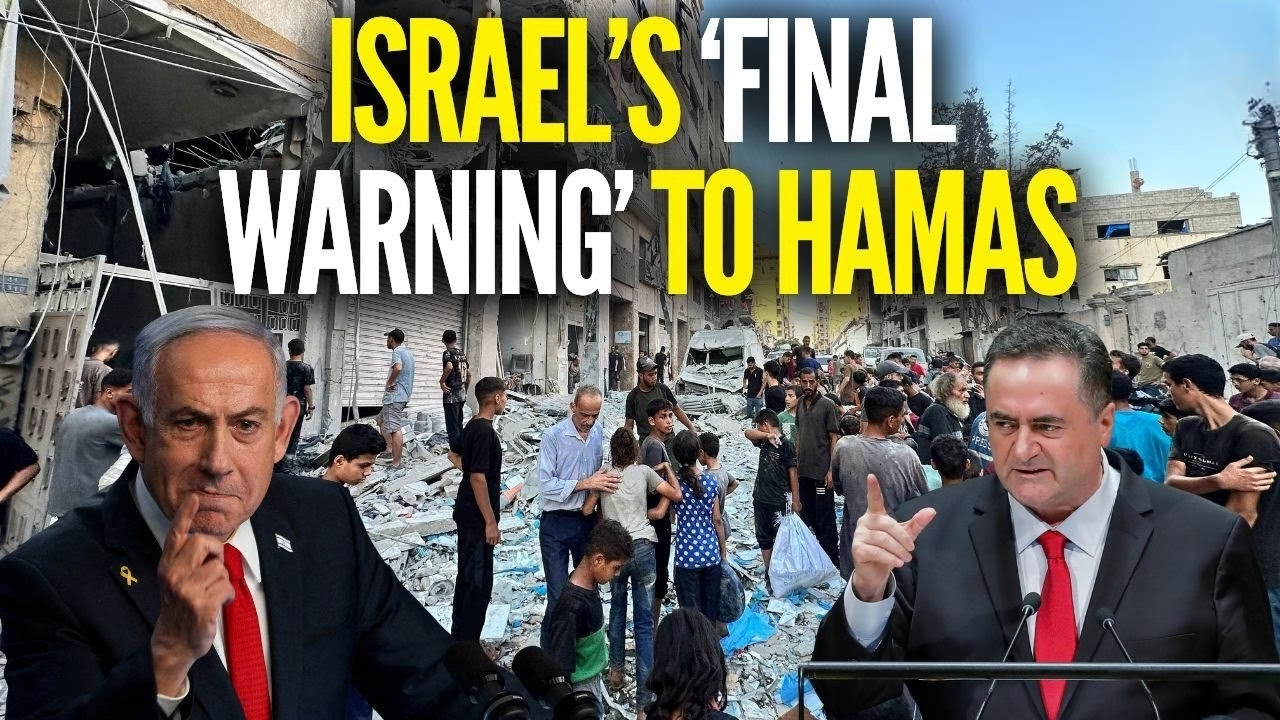
In a dramatic and alarming escalation of the ongoing conflict, Israel issues final ultimatum to Hamas, warning that Gaza faces total destruction unless the militant group surrenders immediately. This hardline announcement marks a critical turning point in the intensifying violence that has claimed hundreds of lives and devastated both sides.
What Led to Israel’s Final Ultimatum?
The conflict between Israel and Hamas has surged over recent weeks, with both sides engaging in relentless exchanges of rocket fire and airstrikes. Hamas, the Palestinian militant organization governing Gaza, continued launching rockets deep into Israeli territory, targeting civilian areas and causing widespread fear.
Israel responded with a series of intense air and ground operations aimed at dismantling Hamas’ military infrastructure. Despite repeated warnings, Hamas refused to halt its attacks. Frustrated and determined, Israel’s Prime Minister Benjamin Netanyahu issued a chilling warning in a national address:
“Put down your weapons or Gaza will be destroyed.”
Israel’s military spokesperson confirmed that the ultimatum is final. “This is not a negotiation. Hamas must immediately cease hostilities and disarm, or face complete destruction,” said Brigadier General Amir Cohen.
Humanitarian Impact in Gaza
The humanitarian toll of the conflict is staggering. According to the latest figures:
- Over 1,200 people have died in Gaza, including hundreds of women and children.
- Thousands have been injured, and entire neighborhoods lie in ruins.
- Power outages, lack of clean water, and shortages of medical supplies have worsened living conditions for the civilian population.
Local nurse Amina Khalil shared a heartbreaking reality:
“We are overwhelmed. Patients are arriving every minute. We do not have enough bandages, medicines, or even space to treat the injured. The situation is dire.”
The United Nations and international aid organizations have repeatedly called for humanitarian corridors to deliver essential supplies and evacuate the injured, but continued hostilities have made such efforts nearly impossible.
Global Reactions to Israel’s Ultimatum
Israel’s final ultimatum to Hamas has drawn swift and mixed reactions worldwide.
- The United States reaffirmed Israel’s right to self-defense but urged caution. State Department spokesperson Maria Evans said, “We call on all parties to avoid actions that endanger civilians and to engage in dialogue toward de-escalation.”
- The European Union echoed the call for restraint, emphasizing the need for protecting innocent lives.
- Amnesty International condemned the threat of total destruction as a violation of international law, warning, “This constitutes collective punishment of a civilian population and may amount to a war crime.”
On social media, hashtags such as #GazaUnderAttack and #EndTheBlockade surged, as people around the world expressed solidarity with Palestinians and condemned the use of overwhelming force.
Thousands also took to the streets in cities like London, New York, Istanbul, and Paris, demanding an immediate ceasefire and humanitarian access. Protestor Rashid Ahmed said,
“We stand in solidarity with Gaza. Innocent lives are at stake, and the world must not stay silent.”
Hamas’ Defiant Response
Hamas leadership rejected Israel’s final ultimatum outright. In a televised statement, a senior Hamas official declared:
“We will never surrender to tyranny. Our people have the right to resist occupation by all means necessary.”
This defiant stance suggests that the conflict may spiral further into a protracted war unless urgent diplomatic intervention occurs.
Why the Social Media Focus Matters
Throughout the conflict, social media has played a crucial role in shaping global perceptions. From eyewitness videos to real-time updates and viral posts, platforms like Twitter and Facebook became essential sources of information for citizens both inside and outside Gaza.
Israel’s attempts to control the narrative through temporary restrictions on social media backfired, as digital-savvy users circumvented bans using VPNs and encrypted messaging apps, keeping the world informed.
Digital rights activists warn:
“Attempting to block information is both futile and unethical. The global community has a right to know what’s happening on the ground.”
What Comes Next?
With the deadline of Israel’s final ultimatum ticking, the world watches anxiously. Will Hamas disarm, or will Israel follow through on its severe threat, risking further civilian casualties and international condemnation?
Political analysts stress that the next 48 hours are critical. Diplomatic channels reportedly are working overtime to broker a last-minute ceasefire, but hopes remain slim.
Dr. Leela Mathews, a Middle East conflict expert, explained:
“This is a volatile moment. Both sides appear entrenched in their positions. The international community must act decisively to prevent further bloodshed.”



